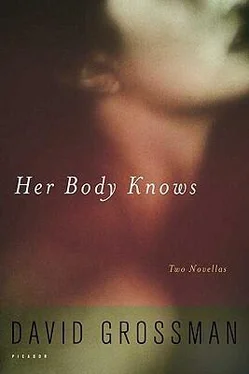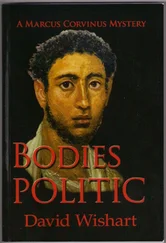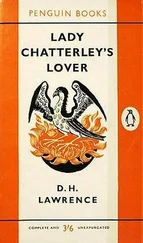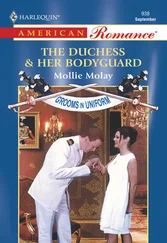In a back row of more modest stalls, he notices portraits of her in varying sizes here and there: Elisheva being thoughtful and Elisheva sleeping, Elisheva dancing, Elisheva dreaming, winking, Elisheva dressed, naked, breast-feeding.
There is a stall selling her own creations. Letters she wrote are displayed under a large glass pane. And lists of every kind-she is mad about lists, he smiles to himself-and work reports, and compositions she wrote as a child. He stands on tiptoe and glimpses at the titles over the broad shoulders of the crowds: "I Was a Little Raindrop," and "The Righteous Are Delivered Out of Trouble." There are papers from high school and university, birthday toasts, even shopping lists. There are also bundles of letters tied with red ribbons, and on the side there is a little sign telling buyers to ask the seller about special letters he keeps in a hidden drawer. And a special offer for collectors: highlights from her diary. Shaul didn't even know she kept a diary, although, on second thought, why not? He reads the price tags with astonishment: even if he wanted to, he couldn't afford to buy them!
But some people have money, and they make purchases, and offer to barter-one guy is willing to trade a diary excerpt from August 20 for one of her bras, any color, and another offers the May 4 page to the highest bidder. Apparently there are many takers, and a kind of public auction is held, and Shaul tries to push his way in, he has to know exactly what happened to her on August 20 and May 4, and where he was then. But there is such excitement over these two items that he is pushed out of the circle and watches brokenhearted as the bra changes hands-the thin, pure white bra, which he liked to open with two fingers when Elisheva was lying on her stomach; he would melt with passion at the sight of her lovely, long, smooth back and her round shoulders, and sink his tongue into the soft hairline on her nape, her hair, which had turned gray at some moment when Shaul must have been looking away-
The market stretches on and on into the horizon, dogs scurry between people's feet, and nimble peddlers sell hot corn on the cob and pink cotton candy and little candied apples, all the market trivialities which Elisheva actually likes. And there are a few crooks, of course. One of them is trying to make a fortune off one of her curls, which lies frizzy and innocent and impudent on a bed of velvet in a little box. Another offers miniature bottles, whose content he does not even disclose; he just waves this bottle or another in his hand and winks and blinks and snickers in the most disgusting and despicable manner. Shaul holds back from running over and strangling him with his own hands and taking over the whole inventory, opening the sealed bottles and dousing himself with her precious nectar. But he must hurry, skip along, he has no choice, because in a few minutes they will reach the hut where she resides and there are still things he has to see before he gets to her, still more loathsome blows to hit him with complete surprise on this haunted-house ride which he boards every year, a set course that cannot be changed. It seems that today he'll have to give up the public trial, with all its details and minutiae, a kind of field court-martial that is held for him to determine how he could allow such a thing to happen to his wife. But as it happens, there is a little more time, a couple of minutes, just to taste. The presiding judge uses an expedited procedure and asks if anyone in the crowd has a personal claim against him. After a long silence, a man steps forward, not a young man, heavy and sad-it is Paul, of course, he made it here after all, of course he did. He slowly makes his way until he is standing opposite Shaul, and a long and detailed debate ensues, right there in front of everyone, with examinations and cross-examinations that Paul conducts against him. It turns out that Paul knows all his secrets and all his little shames, knows exactly where to press and where to push and how to tear his life into shreds in front of everyone. Finally, the surprising verdict is handed down: a duel, in the nude, between him and the "public representative"-namely, Paul. But this will not be just a fistfight. That would be too easy-one man is hit and falls down, and that's the end of it. No, they must also hold an intellectual battle, that is the catch, and it must be in Shaul's fields of expertise. But it turns out that Paul knows more about these too, much more, always more, and Elisheva will suddenly emerge from one of the crevices on the mountain above, will stand with one leg slightly folded, like a doe, will look at them both, from Paul to him and back again, and her thin nostrils will suddenly widen with the tremble of decision
Esti slowed down. Little lights flickered far down the road. A roadblock. A tall, thin Ethiopian soldier with shiny eyes leaned in and asked for papers. He peered through the back window and noticed the figure lying there, huddled, covered with a blanket.
It's all right, Esti said, he's with me.
Have to see his face, the soldier said. Esti didn't understand. She looked back and saw that Shaul's hand was covering his face as he slept.
Leave him alone, she said angrily, he's sleeping. But she was surprised that Shaul had fallen asleep again, and that the flashlight and the strange voice hadn't woken him.
Have to see his face, the soldier insisted.
Shaul, she whispered softly.
He opened one eye and blinked at the light. There was a long silence. Esti tapped the wheel with her finger.
Oh, the soldier said, you came again today?
He handed the papers back to her, lightly patted the side of the car, and went back to his sandbag post. Esti closed the window slowly. Placed both hands on the wheel. They drove on.
And on and on.
Her left hand dropped to her thigh and pressed down hard. She felt her flesh being crushed. She pressed harder, then let go and concentrated entirely on the pain. But the pain passed and she remained. She stared at the dashboard. She would need to fill the car soon. The thought of the drive back troubled her. She was afraid she wouldn't be able to drive home alone after dropping him off. It takes two, she thought, to bear this weight. And again she saw how he had hidden his face with his hand, how he had blinked at the light. The hardest thing, she thought, is waking up someone who is pretending to be asleep.
When I got back-he finally ripped through the silence, unloading his confession impatiently, indifferently even-yesterday, you know, I was knocked out, it must have been 3 a.m. I drove into a telephone pole. We passed it earlier, just past Sde Boker-didn't you see? I took half a transformer with me.
She nodded. Some things took a while to sink in. And the day before yesterday you also went, she determined later, thoughtfully and very quietly.
He crossed his arms over his chest. Closed his eyes.
And every day Elisheva has been there, she thought, and every year when she goes to be alone. She could hear his breaths. She jostled her knees against each other a few times. Tell me, she said.
He opened a cloudy eye. Yes, she said with sudden eagerness. But I'm crazy, he mumbled, I'm a piece of shit. You could say so, she said, but I want to hear. Why?
Why? What could she say, where could she start? You ask as if there's only one reason. Give me one.
When you talk about it, she said, I suddenly breathe differently. Okay, that's a reason. He smiled pathetically.
I haven't told you about the wedding yet-he was barely audible, and she glanced in the mirror and saw him sinking further and further into himself, choking down his bleeding self-their wedding, which of course has no significance from a legal standpoint, but they did it anyway. The symbolic aspect, you see, was very important to them, it seems.
Читать дальше












